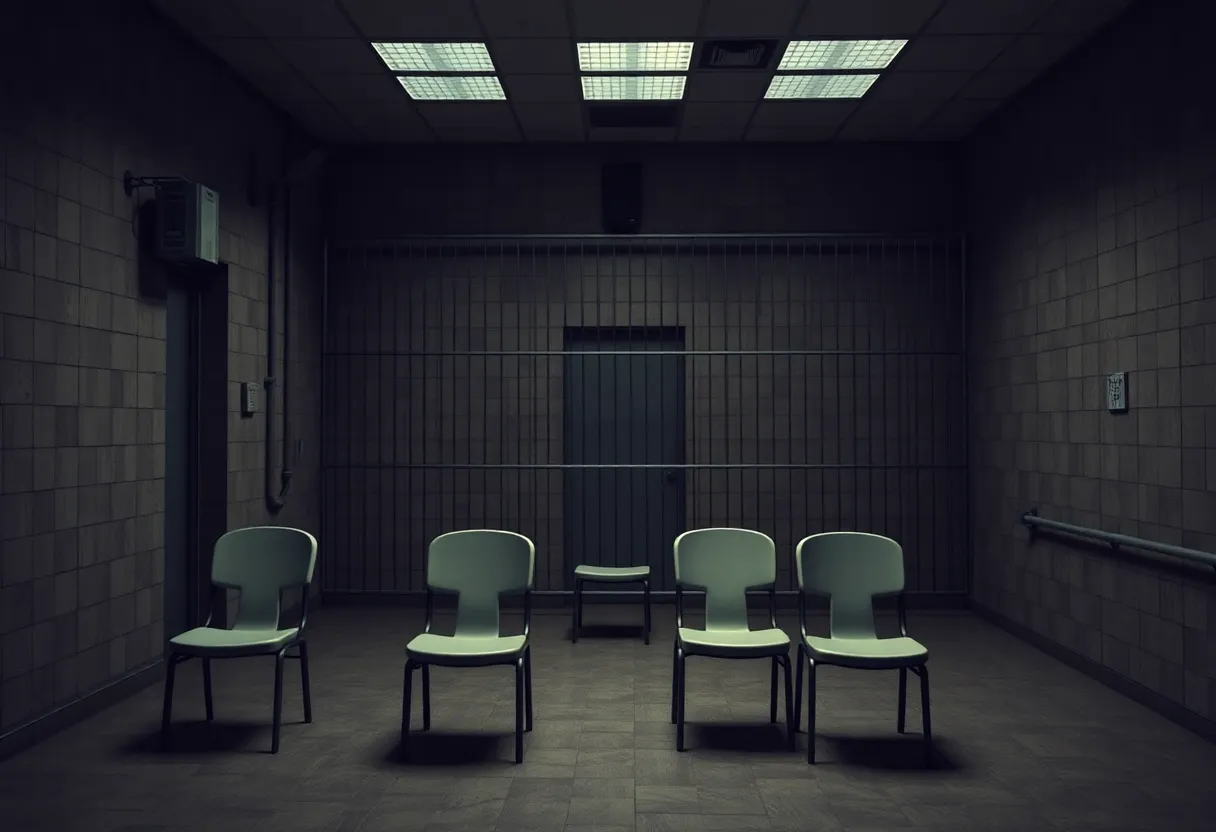

Execution Chamber Preparations
Inmate Brad Sigmon is set to be executed by firing squad on March 7, 2025, marking a historic moment in South Carolina’s justice system. As the first inmate in the state to choose this execution method over lethal injection or the electric chair, Sigmon’s case ignites a debate about capital punishment ethics. His choice stems from concerns over the pain associated with other methods and highlights significant ongoing legal discussions regarding his original trial and potential clemency.
As we approach the date of March 7, 2025, the air in Greenville, South Carolina, is thick with anticipation surrounding the case of inmate Brad Sigmon. This 67-year-old man is set to be executed by firing squad, making history as the first inmate in the state to choose this method over the more traditional lethal injection or the electric chair. For many, this decision raises eyebrows and spurs a wide array of discussions about the implications of capital punishment.
If all goes as planned, Sigmon’s execution will mark a significant moment, as it brings the firing squad back into the fold of execution methods in the United States, where it hasn’t been used for executing inmates in the last 15 years. You might find it interesting to note that only three inmates have undergone execution by firing squad in the U.S. since 1976, and all of these instances were in Utah, with the last execution taking place in 2010. This spectacle won’t just be a rehash of past methods; it will be a novel, albeit controversial, approach for South Carolina’s justice system.
As Sigmon prepares for what lies ahead, there’s a specific protocol that will unfold in the death chamber. Picture this: Sigmon will be strapped to a chair, a hood placed over his head, and a target clearly marked over his heart. From approximately 15 feet away, three carefully selected volunteers will aim their rifles and fire through a small opening, completing the execution in a matter of seconds. It’s a scene that many of us might find difficult to fathom.
Sigmon made a calculated choice when he opted for the firing squad over other methods. According to his legal representation, he was deeply concerned about the severe pain and possible complications associated with lethal injections, especially following three executions in South Carolina that raised serious ethical questions. Moreover, choosing the electric chair, which could lead to potentially horrific and agonizing experiences, was not on the table for him either; his legal team expressed that it felt like a death that might “burn and cook him alive.”
Sigmon’s path to this moment began back in 2001 when he was convicted of a brutal crime that left his ex-girlfriend’s parents dead after he attacked them with a baseball bat. This narrative takes on an even darker twist as he subsequently kidnapped his ex-girlfriend at gunpoint after the brutal slayings. Thankfully, she managed to escape his clutches.
Despite the looming date of execution, Sigmon’s defense has one last card up its sleeve. He has a pending appeal before the state Supreme Court, insisting that his trial lawyers lacked the experience needed to properly represent him. They also failed to communicate crucial details about his backstory that could have swayed the jury’s decision. In addition to this, he has one more chance for clemency, which would require a lengthy appeal to Governor Henry McMaster. However, history shows that no South Carolina governor has ever granted clemency since the state reinstated the death penalty in 1976.
In anticipation of potential executions by firing squad, the state government has even dedicated a hefty $54,000 to prepare the execution chamber, making modifications that include bulletproof glass and specialized chairs designed to contain blood. This investment has sparked conversations around the moral and ethical implications of state-sponsored executions and whether society at large accepts these practices.
With many people weighing in on the subject, Sigmon’s case serves as a flashpoint of debate around the death penalty, redemption, and rehabilitation. His legal team argues that an execution would send a message that the state does not believe in second chances or personal growth. As March 7 approaches, the community is left to ponder the question: what does justice truly look like?
News Summary Newberry County is currently on high alert as local authorities search for Landon…
How Can You Leverage Behavioral Psychology to Boost Your Digital Marketing Success? In the digital…
News Summary In an unexpected twist, 43 monkeys escaped from the Alpha Genesis Primate Research…
News Summary Greenville recently celebrated Michelin North America, Inc.'s 50-year presence in South Carolina. Local…
News Summary South Carolina has officially been declared the top growth state in 2024 by…
News Summary After a thrilling win over Texas A&M, Columbia, SC, experienced chaos as a…